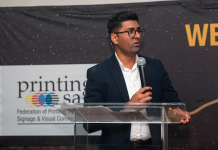Novus Holdings has provided a breakdown on some of the challenges facing basic education in South Africa, along with potential solutions.
The recent budget speech, delivered by former finance minister Malusi Gigaba, allocated a total of R324 billion expenditure on higher education over the next three years. This includes an extra R57 billion to cover fee-free higher education. This investment has been touted by some as being at the expense of basic education, with some saying that this means more sustainable funding is needed to ensure free and affordable education at all levels.
‘The Government is doing its part to deliver on its promise made in December 2017, and it is now up to the corporate sector to play a more active role in filling any funding gaps in basic education that may stem from the focus on free higher education,’ said Mike Ehret, group executive for business development at Novus Holdings.
Ehret added that education plays a pivotal role in South Africa’s landscape as it aids in providing the critical skills needed for the country’s economic growth in the long-term.
‘But we need to improve drop-out rates at the basic education stage in order to have a positive ripple effect to the tertiary education phase.’
Last year it was reported that 47.9% of university students did not complete their degrees, with black students having the highest drop-out rate at 32.1% in the first year of study. In addition, a significant number of pupils drop out of school before they reach matric, with the department of basic education’s figures showing that 44.6% of learners either drop out of the system altogether or are held back in Grade 10 and 11.
Ehret said that education researchers believe that poor learning in the foundation phases could be to blame for the massive drop-out rate. ‘To make a lasting impact, parents, teachers, government and the private sector must work together to ensure the foundation phase of learning is improved on so as to decrease the drop-out rates.’
Ehret added that an investment in the foundation phase of learning from corporate South Africa through a sustainable Corporate Social Investment (CSI) programme can play a critical role in making a difference.
The Future Foundation, Novus Holdings’ corporate social investment programme, is specifically focused on education. Novus Holdings also recently joined hands with the department of basic education to improve literacy levels across South Africa in the ‘Read to Lead’ campaign. The initiative includes the donation of mobile libraries at schools across the country, the latest of which was opened in January 2018 at Bonteheuwel High School, Cape Town. Underpinning the donation is Novus Holdings’ core belief that access to reading material gives learners the best chance of success as they go through their schooling years.
The company, through the Paarl Media Bursary Trust, has awarded more than 100 bursaries to the value of R10 million since its inception in 2008 to learners to help finance their tertiary education.
Last year, in December 2017, Novus Holdings announced the awarding of bursaries to the value of R525,000 to 7 Western Cape-based matric learners.
It is imperative that corporate South Africa contribute to education. This will help alleviate the burden faced by Government to provide quality education at all levels of the schooling system. It is only by working together that we will be able to make a difference,’ concluded Ehret.





















